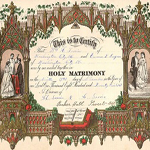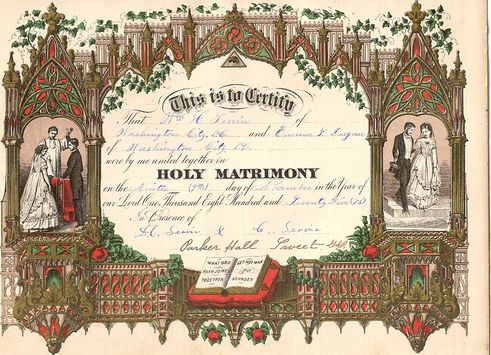
Even though there are many helpful sites on the internet that list all the states and their corresponding laws, ultimately you should visit the actual website for your governing entity. Go directly to the official website of your state/county/parish/municipality or whatever entity governs your area. It is of the upmost importance to find out the current laws and rules for the area/state/county where you will be performing weddings.
After you do some research online and understand the laws of your jurisdiction, you should also contact and visit in person with your county clerk (or whoever handles the marriage license duties in your jurisdiction) to make sure you get all the pertinent information. Then, if necessary, do the required filing or registering so that you are recognized as a legal officiant.
While at the courthouse (or other applicable government office) you should ask the clerk how to fill out the marriage license correctly.
Many states require that witnesses sign the marriage license too. Be sure to find out all the details of the license requirements. It is important to comply with the time limits for submitting the completed marriage license as well. Verify the address for where it is supposed to be mailed to upon completion. The county clerk in my town was very helpful and gave me a copy of a blank marriage certificate and she instructed me as to which parts I was to fill in.
I received my ordination online from Universal Life Church, and ULC was listed amongst the many denominations contained in the database of the program they used at the courthouse when the clerk registered me in the “Minister’s Record Book”. However, all states have different laws so be sure to do your research and make sure you comply with the all applicable laws.







